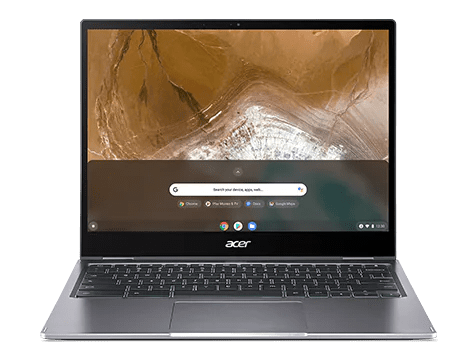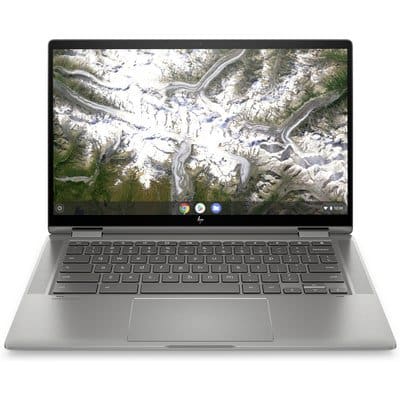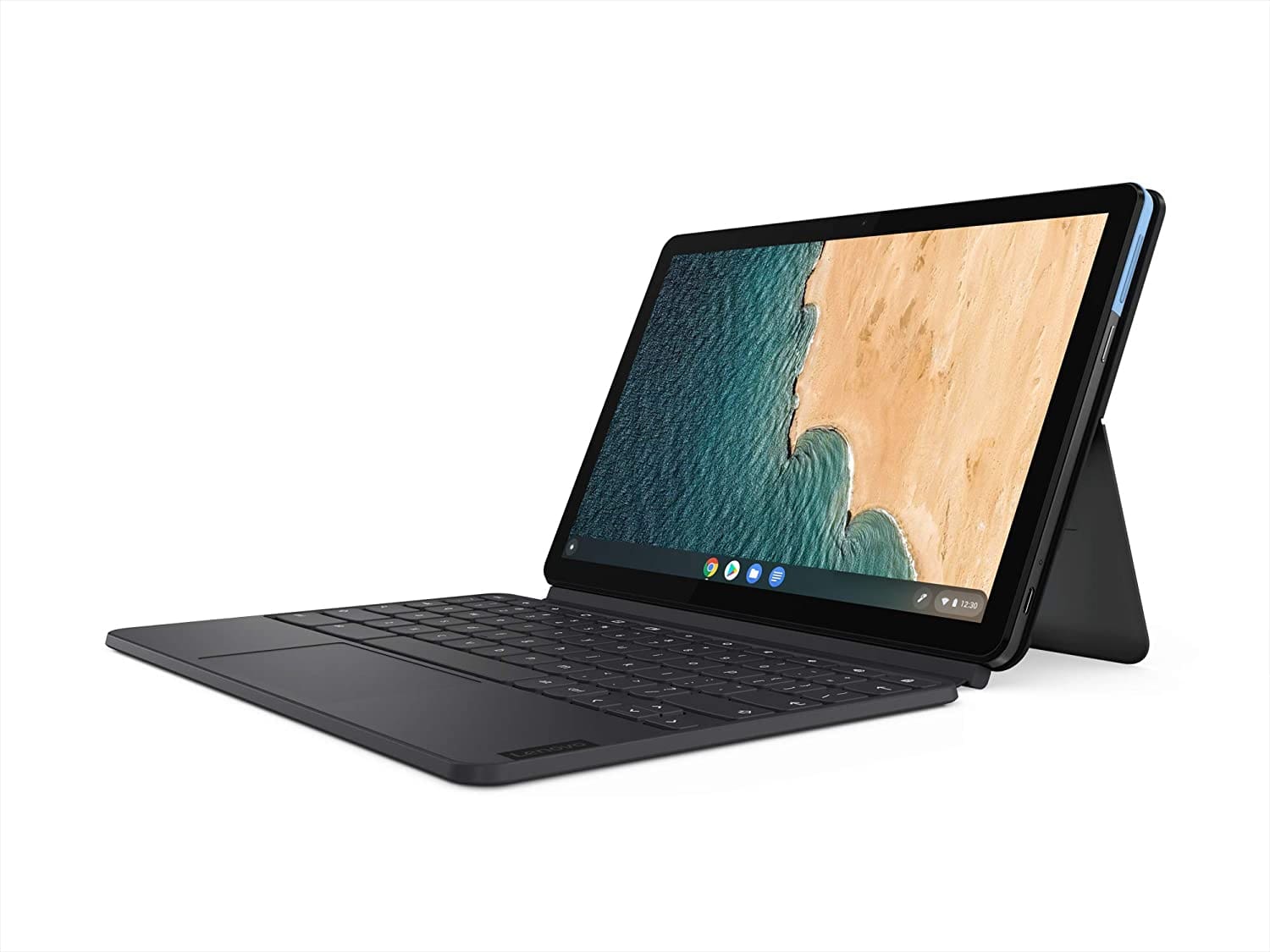The journey of Chrome OS evolving into the high-functioning system it proudly is today was gradual yet steady. Present-day, it continues to impress and flourish as more and more system updates release each month, and a major OS update drops every six weeks or so. In retrospect, Chromebooks come from humble beginnings.
There was a time when they were simply barebones, donning nothing more than the Google Chrome browser and a handful of other trivial features. Today, however, the story has been completely revitalized, and Chrome OS isn’t the system it once was. We know this might come off as a heartening surprise to many, but a modern-day Chromebook can do the following things.
- Installing Microsoft Visual Studio Code for writing code and programming
- Running Windows 10 and even Windows 11
- Playing Nintendo DS games
- Installing WordPress
Despite considering all this, we still believe that those are nothing to write home about compared to what we’re discussing next. Chromebooks have integrated with the Google Play Store since 2016 to bring the world of Android applications to Chrome OS, ameliorating their capability tenfold and pumping life into this speedy operating system more than ever. If that isn’t enough, Chromebooks also have built-in Linux functionality that can enable a few easy steps. The combined effect of these two premium-end features has respectfully taken Chromebooks to the next level as if they weren’t already dominating the education sector and leaving macOS in the dust.
However, there is a catch. Not all Chromebooks have been engineered to support the Play Store and Linux, which is no less than a bummer. With that said, we presume that there is logical reasoning behind this decision of Google. It’s possible that the developers didn’t want to risk Play Store applications running on outdated hardware that could create a lot more problems than it solves. Therefore, only a select number of Chromebooks were introduced to this project when it first came out in 2016.
However, Google says that all Chromebooks made after 2019 will have built-in support for the Google Play Store and Linux, but any Chrome OS laptop made before that year may or may not be compatible with the two features.
Therefore, in this article, we’ll be enlisting those Chromebooks made before 2019 that have support for the Google Play Store and Linux. We’ll also talk about some of the best Chrome OS machines you can get today that are loaded with all kinds of features. So without any further ado then, let’s get right into this article.
All Chromebooks with support for the Google Play Store and Linux
Google Play Store
According to the official Chromium Projects blog, the following is a list of all pre-2019 Chromebooks capable of running the Google Play Store. While we won’t enlist all of the machines here in the article, you can check out the full roster using this link here. In addition to that, some older Chromebooks are still planned to receive compatibility for the functionality at hand. Still, not every Chromebook ever made will be included.
Supported Acer Chromebooks
- Chromebook R11 (CB5-132T, C738T)
- Chromebook Spin 11 (R751T)
- Chromebook R13 (CB5-312T)
- Chromebook 11 N7 (C731, C731T)
- Chromebook 11 (C771, C771T)
- Chromebook 14 (CB3-431)
- Chromebook 14 for Work (CP5-471)
- Chromebook 15 (CB3-532)
- Chromebook 15 (CB515-1HT/1H)
- Chromebook 11 (C740)
- Chromebook Spin 15 (CP315-1H/1HT)
- Chromebook 15 (CB315-1H/1HT) (Planned for Play Store support)
Supported ASUS Chromebooks
- Chromebook Flip C100PA
- Chromebook Flip C101PA
- Chromebook Flip C213
- Chromebook C202SA
- Chromebook C300SA / C301SA
- Chromebook Flip C302
- Chromebook C204
- Chromebook C223
- Chromebook C403
- Chromebook C423
- Chromebook C523
- Chromebook Flip C214
- Chromebook Flip C434
- Chromebox 3 (CN65)
- Chromebook C200MA (Planned)
- Chromebook C201PA (Planned)
- Chromebook C300MA (Planned)
Supported Dell Chromebooks
- Chromebook 11 (3180)
- Chromebook 11 (5190)
- Chromebook 11 2-in-1 (3189)
- Chromebook 11 2-in-1 (5190)
- Chromebook 13 (3380)
- Chromebook 13 (7310)
- Chromebook 3100
Supported Haier Chromebooks
- Chromebook 11e
- Chromebook 11 C
- Chromebook 11 (Planned)
- Chromebook 11 G2 (Planned)
Supported Google Chromebooks
- Chromebook 11 G5 EE
- Chromebook 11 G5
- Chromebook 11 G6 EE
- Chromebook x360 11 G1 EE
- Chromebook 13 G1
- Chromebook 14 G5
- Chromebook 11 G7 EE
- Chromebook 11A G6 EE
- Chromebook 14A G5
- Chromebook 15 G1
Supported Lenovo Chromebooks
- Thinkpad 11e Chromebook (Gen 3)
- ThinkPad 11e Yoga Chromebook (Gen 3)
- ThinkPad 11e Chromebook (Gen 4)
- Thinkpad 11e Yoga Chromebook (Gen 4)
- N22 Chromebook
- N23 Chromebook
- 100e Chromebook
- Flex 11 Chromebook
- N23 Yoga Chromebook
- 300e Chromebook
- 500e Chromebook
Supported Samsung Chromebooks
- Chromebook Plus
- Chromebook Pro
- Chromebook 3
- Chromebook Plus (LTE)
- Chromebook Plus (V2)
Linux
According to the official Chromium Projects blog, the following is a list of all pre-2019 Chromebooks that actively support Linux. Below, you’ll catch a glance at some of the Linux-compatible Chromebooks, but if it’s a detailed list that you’re after, click here. Like the Google Play Store, many outdated Chromebooks are planned to receive Linux functionality, but not all of the Chrome OS laptops manufactured before 2019 will get Linux.
Supported Acer Chromebooks
- Chromebook 11 (C732, C732T, C732L, C732LT)
- Chromebook 11 (CB311-8H, CB311-8HT)
- Chromebook 11 N7 (C731, C731T)
- Chromebook 13 (CB713-1W)
- Chromebook 14 (CB3-431)
- Chromebook 15 (CB3-532)
- Chromebook 15 (CB315-1H, CB315-1HT)
- Chromebook 15 (CB515-1H, CB515-1HT)
- Chromebook 514
- Chromebook R11 (CB5-132T, C738T)
- Chromebook R13 (CB5-312T)
Supported Asus Chromebooks
- Chromebook C202SA
- Chromebook C223
- Chromebook C300SA / C301SA
- Chromebook C423
- Chromebook C523
- Chromebook Flip C101PA
- Chromebook Flip C213
Supported Dell Chromebooks
- Chromebook 11 (3180)
- Chromebook 11 (5190)
- Chromebook 11 2-in-1 (3189)
- Chromebook 11 2-in-1 (5190)
Supported Google Chromebooks
- Pixelbook
- Pixel Slate
- Pixelbook Go
Supported HP Chromebooks
- Chromebook 11 G5
- Chromebook 11 G5 EE
- Chromebook 11 G6 EE
- Chromebook 14 G5
- Chromebook 14A G5
- Chromebook x2
Supported Lenovo Chromebooks
- 100e Chromebook
- 300e/N23 Yoga/Flex 11 Chromebook
- 500e Chromebook
- Flex 11 Chromebook
- Ideapad C330 Chromebook
- Ideapad S330 Chromebook
- N22 Chromebook
- N23 Chromebook
- N23 Chromebook (Touch)
- N42 Chromebook
Supported Samsung Chromebooks
- Chromebook 3
- Chromebook Plus
- Chromebook Plus (LTE)
What to know regardless of not having support for Play Store and Linux
Google affirms that even if your Chromebook has not been updated with Play Store and Linux, it will continue to receive regular security updates. However, that stands true unless you’ve reached your device’s Auto Update Expiration (AUE) date, which is more colloquially known as the Chromebook’s end-of-life. We’ve written a whole article on this topic, so be sure to check it out to read everything about the possibilities of using your Chrome OS laptop after it goes beyond its AUE date.
Best Chromebooks that run Android and Linux apps
Now that we’ve talked about the past let’s delve into the present and the future simultaneously. The world has seen its fair share of top-notch Chromebooks recently, so it only makes sense to talk about some of them in this compatibility-oriented article here. Moreover, if you’re in the market looking for a new device, you’re going to need all the help you can get to make you come to a definite buying conclusion. Therefore, let us talk about the 3 best Chromebooks that run Android and Linux apps and pack all the bells and whistles that you would possibly need.
1. Acer Chromebook Spin 713

Acer Chromebook Spin 713
The Acer Chromebook Spin 713 brings so much to the table if we look at its price tag. It’s almost ridiculous. Let us say it out here right now: this is one of the best Chromebooks ever made. Do you want a good screen? You got it with the Spin 713’s 13.5-inch 3:2 aspect ratio QHD display. Do you want speedy performance and powerful internal specs? You’re going to rock your workspace with a 10th Generation Intel Core i5 processor, 8 GBs of RAM, and 128 GBs of NVMe SSD storage. Moreso, it gets even better from here on out.
The device’s body is all aluminum, and with Corning Gorilla Glass protection, the Spin 713 is as durable as it gets. It’s mil-spec rated and offers great resistance in multiple types of situations. It can survive drops of up to 4 feet and even a downward force of 130 pounds. As for the hinge, you can lift it or shut it down by only using one of your fingers. Furthermore, you’re going to get one of the best keyboard experiences with the Spin 713, not to mention the fabulous trackpad that’s fluid, responsive, and all of the above. We told you, it’s ridiculous.
Another thing worth mentioning is that the Spin 713 has a habit of going on sale. It’ll pay off heavily to keep your eyes peeled for any discount deals popping up on BestBuy, Walmart, or Target. Price reductions range from $50 to $100, which is nothing short of a sizable treat. We almost forgot to mention the extended, 11-12 hour battery timing of the device that makes sure to outlast your school or office day without breaking a sweat.
This device is already a lot of bang for your buck at its MSRP of $649, so if you’ve got the budget, don’t think twice about buying the Acer Chromebook Spin 713. Excellent performance, sensational, high-resolution, 400-nits bright display, great port selection, awesome battery life, military-grade durability, marvelous trackpad, and keyboard combo – what more could you possibly want from a Chromebook that costs below $700? The Spin 713 is a beast when it cuts down to running Play Store and Android applications, so you can dive in knowing that beforehand.
If reading about the Acer Chromebook Spin 713 has piqued your interest, check out its in-depth review to see in what areas does the device falter.
2. HP Chromebook x360 14c

HP Chromebook x360 14c
The HP Chromebook x360 14c is hands-down one of the best Chrome OS laptops out there running the Google Play Store and Linux with top-notch efficacy. The value for money proposition is outright remarkable as you’re not only getting speedy, high-end performance with this Chromebook but also a premium-grade build quality that impresses people right from the get-go. With a 10th Generation Intel Core i3-10110U processor, 8 GBs of RAM, and hard drive size of 64 GB eMMC, you’re getting plenty of horsepower under the hood that’ll run Android apps like a dream.
The x360 14c has a fairly decent port selection as well, offering two “SuperSpeed” USB-C ports, a single “SuperSpeed USB-A” port, a standard 3.5mm Headphone Jack, and even a microSD card reader slot to expand your storage options. HP is an industry giant that’s particularly known to make superb keyboards and trackpads on their laptops. Quite fortunately, that is exactly what they’ve done with this Chromebook. The x360 14 has a stellar LED-illuminated keyboard that paves the way to a comfortable and effective typing experience. The high-quality glass trackpad is no different from being made wide, spacious, and exceedingly responsive.
The best part is that the HP Chromebook x360 14c doesn’t force you to dig deep into your pockets, unlike its predecessor – the original x360. Although it is also a noteworthy Chromebook made with fine components, the major turn-off is its price tag, which starts from $800. The x360 14c is not only a spectacular Chromebook but is also cost-effective, coming in for somewhere around $450 and labeling itself as one of the best mid-range Chromebooks out in the market. It sports a convertible form factor to fit the diversity of an individual’s work and personal life.
If not being the sure-fire home runner, the screen does leave the users fairly satisfied at the end of the day. It affords adequate brightness that goes up to 250 nits and attributes to a commendable viewing experience. On paper, it’s a 14-inch FHD (1920 x 1080) 16:9 aspect ratio screen that uses an IPS display. As a nifty gimmick, the x360 14c has a physical toggle for the privacy shutter on the camera mounted to the side. While this isn’t exactly ground-breaking, we will welcome the bonus feature with a warm embrace.
If you’d like to know more about the HP Chromebook x360 14c, it’s worth reading our review article on it. Check out the write-up here.
3. Lenovo Chromebook Duet

Lenovo Chromebook Duet
As far as budget Chrome OS laptops go, the Lenovo Chromebook Duet has rarely seen worthy competition. This device costs around $250, but after taking a close, hard look at it with a hands-on experience, we had to double-check that asking price. The Chromebook Duet has an impressive build quality and a 2-in-1 convertible form factor. It’s also incredibly lightweight, weighing about 2 pounds, and if you detach the keyboard, the tablet is even lesser than 1 pound.
This lends the Chromebook unrivaled portability, making it the perfect device for on-the-go lifestyles. Whether you’re a student or someone with an office job, the Chromebook Duet is going to keep you thoroughly satisfied with itself. In terms of the specifications, there’s a MediaTek Helio P60T processor, 64 GBs of RAM, and a 4 GB hard drive storage. In addition, it arrives with built-in support for the Google Play Store and Linux applications, so you don’t have to meddle with compatibility issues.
The performance of Android apps never disappoints when the Chromebook Duet is at the forefront of your desktop, and the same goes for anything you run on the Linux Terminal. Continuing the success story is the screen that actually houses a 10.1-inch FHD (1920 x 1200) IPS display with a 16:10 aspect ratio. This subjects you to perceive rich, vibrant colors and spectacular viewing angles.
Most importantly, the screen brightness tops 400-nits, which we don’t get even in higher-end Chromebooks. With 10-11 hours of battery life, this Chromebook isn’t going to let you down when you take it with you outside. With their loudness and clarity, the speakers are also quite appreciable, which is, again, out of the domain of budget-friendly Chromebooks. Sounds only fair to assume then that the Duet has changed how inexpensive Chrome OS laptops are looked at, thereby raising the bar that other manufacturers now must reach.
Read how the Lenovo Chromebook Duet has measured up in our full review article here.
Conclusion
Chromebooks have increased their functionality significantly if we look back on how Chrome OS first emerged into the computing scene. As mentioned earlier, they can now walk the extra mile if one is willing to take them. It’s undeniable that ever since the Google Play Store and the realm of Linux have made their foray into Chrome OS, a world of opportunities has been unlocked, making a regular Chromebook more jam-packed with features than ever.
In this article, we have shown you the list of outdated models that have been made compatible with Play Store and Linux, so you can refer to it if you own a pre-2019 Chromebook. On the contrary, if you’re looking to purchase a new Chromebook, we’ve also listed 3 of the best options you have available right now. If you require further assistance, our master guide on choosing a Chromebook has all the answers you need. Happy shopping!
